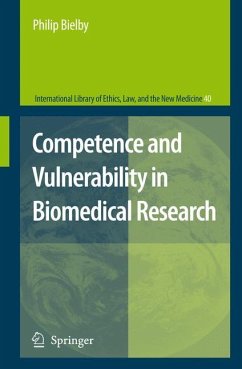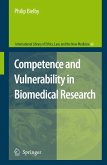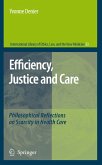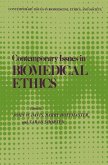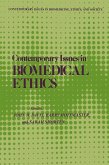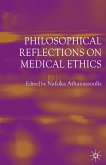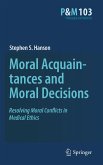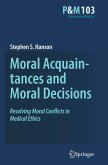Enhanced knowledge of the nature and causes of mental disorder have led increasingly to a need for the recruitment of 'cognitively vulnerable' participants in biomedical research. These individuals often fall into the 'grey area' between obvious decisional competence and obvious decisional incompetence and, as a result, may not be recognised as having the legal capacity to make such decisions themselves. At the core of the ethical debate surrounding the participation of cognitively vulnerable individuals in research is when, if at all, we should judge them decisionally and legally competent to consent to or refuse research participation on their own behalf and when they should be judged incompetent in this respect.
In this book, the author develops a novel justificatory framework for making judgments of decisional competence to consent to biomedical research with reference to five groups of cognitively vulnerable individuals - older children and adolescents, adults with intellectual disabilities, adults with depression, adults with schizophrenia and adults with dementia, including Alzheimer's disease. Using this framework, the author argues that we can make morally defensible judgments about the competence or incompetence of a potential participant to give contemporaneous consent to research by having regard to whether a judgment of competence would be more harmful to the 'generic rights' of the potential participant than a judgment of incompetence. The argument is also used to justify an account of supported decision-making in research, and applied to evaluate the extent to which this approach is evident in existing ethical guidelines and legal provisions. The book will be of interest to bioethicists as well as psychiatrists and academic medical lawyers interested in normative questions raised by the concepts of competence and capacity.
In this book, the author develops a novel justificatory framework for making judgments of decisional competence to consent to biomedical research with reference to five groups of cognitively vulnerable individuals - older children and adolescents, adults with intellectual disabilities, adults with depression, adults with schizophrenia and adults with dementia, including Alzheimer's disease. Using this framework, the author argues that we can make morally defensible judgments about the competence or incompetence of a potential participant to give contemporaneous consent to research by having regard to whether a judgment of competence would be more harmful to the 'generic rights' of the potential participant than a judgment of incompetence. The argument is also used to justify an account of supported decision-making in research, and applied to evaluate the extent to which this approach is evident in existing ethical guidelines and legal provisions. The book will be of interest to bioethicists as well as psychiatrists and academic medical lawyers interested in normative questions raised by the concepts of competence and capacity.
From the reviews:
"'Competence and Vulnerability in Biomedical Research' develops a framework for evaluating the decisional competence of potential study subjects and providing appropriate support for those with impaired competence. Given the practical and ethical challenges of obtaining consent from the cognitively vulnerable, such a framework is welcome. The book studies five aspects of competence -- agency, task, decisional, societal and legal ... . the text is very technical and best suited to bioethicists, attorneys and psychiatrists with an interest in the area." (Norman M. Goldfarb, Journal of Clinical Research Best Practices, Vol. 7 (9), September, 2011)
"'Competence and Vulnerability in Biomedical Research' develops a framework for evaluating the decisional competence of potential study subjects and providing appropriate support for those with impaired competence. Given the practical and ethical challenges of obtaining consent from the cognitively vulnerable, such a framework is welcome. The book studies five aspects of competence -- agency, task, decisional, societal and legal ... . the text is very technical and best suited to bioethicists, attorneys and psychiatrists with an interest in the area." (Norman M. Goldfarb, Journal of Clinical Research Best Practices, Vol. 7 (9), September, 2011)

